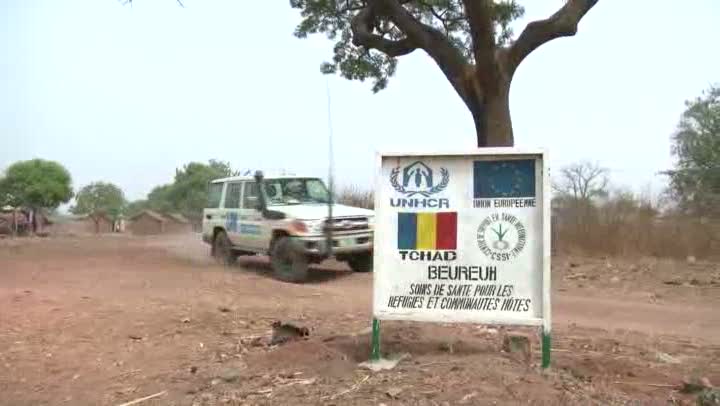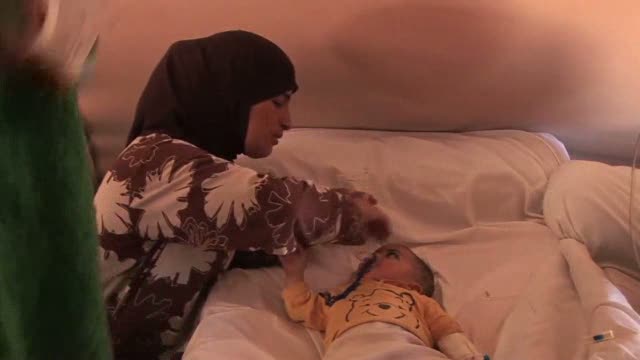Health Information System (HIS) Reference Manual
Health, January 2010

© UNHCR
Health Information System Reference Manual
The manual forms the core reference document for a five-day "Training of Trainers" workshop. This is the prelude to country-level training for implementing partner staff, followed by camp-based deployment of the HIS. The modules are designed to be reproduced and used independently of the manual, in field trainings and exercise work for frontline health staff.
Part One: Introduction
Part One presents an overview of the HIS. It describes the purpose of data collection, the process of selecting standards and indicators, and the importance of standardised health information. It also introduces the concept of the data cycle, the key partners involved, and explains the frequency of reporting at each level of health management.
Part Two: Technical Sections
Part Two introduces the technical sections in the HIS. The HIS contains 10 technical modules, which correspond to the primary healthcare model upon which services are planned, organised and delivered (see List).
The modules identify the sources required for data collection; define who is responsible for the data; and provide guidance on the "what, how and when" of collecting and reporting health information. Each has been designed as a reproducible, field-based guide that can be used independently of the manual to train staff at the camp level.
Part Three: Data Management and Support
Part Three contains core topics related to data management and data validation; internal auditing and quality control; and database management. It also describes how new toolkits will be updated and replaced in the field.
Download the entire publication in zipped format for offline browsing and/or printing:
The health of refugees and other displaced people is a priority for UNHCR.
Health crisis in South Sudan
There are roughly 105,000 refugees in South Sudan's Maban County. Many are at serious health risk. UNHCR and its partners are working vigorously to prevent and contain the outbreak of malaria and several water-borne diseases.
Most of the refugees, especially children and the elderly, arrived at the camps in a weakened condition. The on-going rains tend to make things worse, as puddles become incubation areas for malaria-bearing mosquitoes. Moderately malnourished children and elderly can easily become severely malnourished if they catch so much as a cold.
The problems are hardest felt in Maban County's Yusuf Batil camp, where as many as 15 per cent of the children under 5 are severely malnourished.
UNHCR and its partners are doing everything possible to prevent and combat illness. In Yusuf Batil camp, 200 community health workers go from home to home looking educating refugees about basic hygene such as hand washing and identifying ill people as they go. Such nutritional foods as Plumpy'nut are being supplied to children who need them. A hospital dedicated to the treatment of cholera has been established. Mosquito nets have been distributed throughout the camps in order to prevent malaria.
Health crisis in South Sudan
UNHCR and Partners Tackle Malnutrition in Mauritania Camp
The UN refugee agency has just renewed its appeal for funds to help meet the needs of tens of thousands of Malian refugees and almost 300,000 internally displaced people. The funding UNHCR is seeking is needed, among other things, for the provision of supplementary and therapeutic food and delivery of health care, including for those suffering from malnutrition. This is one of UNHCR's main concerns in the Mbera refugee camp in Mauritania, which hosts more than 70,000 Malians. A survey on nutrition conducted last January in the camp found that more than 13 per cent of refugee children aged under five suffer from acute malnutrition and more than 41 per cent from chronic malnutrition. Several measures have been taken to treat and prevent malnutrition, including distribution of nutritional supplements to babies and infants, organization of awareness sessions for mothers, increased access to health facilities, launch of a measles vaccination campaign and installation of better water and sanitation infrastructure. Additional funding is needed to improve the prevention and response mechanisms. UNHCR appealed last year for US$144 million for its Mali crisis operations in 2013, but has received only 32 per cent to date. The most urgent needs are food, shelter, sanitation, health care and education.
The photographs in this set were taken by Bechir Malum.
UNHCR and Partners Tackle Malnutrition in Mauritania Camp
Kuwaiti Funds Provide Vital Medical Aid for Syrians in Lebanon
As the number of Syrian refugees in Lebanon continues to grow, ensuring access to quality health care is becoming an increasing challenge for humanitarian aid groups and the international community. So, Kuwait's unprecedented donation in April of US$110 million for UNHCR's Syria crisis operations this year came at a most opportune time. Slightly more than 40 per cent of the amount has been used to fund programmes in Lebanon, including the provision of vital - and often life-saving - medical care. In the following photo gallery, photographer Shawn Baldwin looks at the essential work being done in just one Kuwaiti-supported clinic in northern Lebanon. The small Al Nahda Primary Health Care Clinic in the town of Beddawi has a staff of seven doctors and one nurse. Between 600 and 700 people seek medical attention there every month and the clinic meets the needs of some of the most vulnerable refugees.
Kuwaiti Funds Provide Vital Medical Aid for Syrians in Lebanon


Lebanon: A Tradition Yields New Opportunities
UNHCR and partners are training scores of Syrian and Lebanese women in traditional fabric printing – helping to sustain centuries-old techniques and provide livelihoods for refugees and host communities.


Chad: Health for all
Refugees in southern Chad receive health care under a European Union-funded programme. A new clinic tackles malaria, malnutrition, respiratory infections and more.


Jordan: Getting Health Care
In Jordan's Za'atri Refugee Camp, dust and heat are taking their toll, especially on young children.


















































